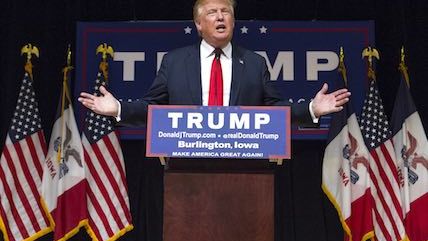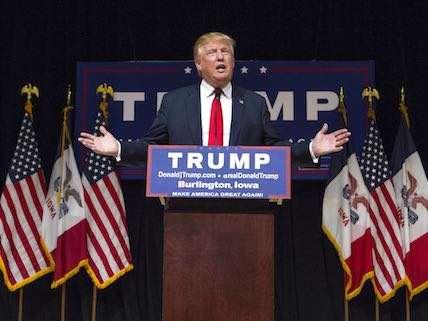White Identity Politics Gave Us Trump. But Did the Left Give Us White Identity Politics?
Welcome to the tribe.


Sen. Bernie Sanders recently criticized the Democratic Party's slavish devotion to an overly-simplistic form of race-and-gender-based identity politics.
"It is not good enough for someone to say, 'I'm a woman! Vote for me!' No, that's not good enough," said Sanders. "What we need is a woman who has the guts to stand up to Wall Street, to the insurance companies, to the drug companies."
In response, Quentin James—former head of Ready for Hillary's outreach efforts to people of color—had this to say, "I like U.S. Senator Bernie Sanders but his comments regarding identity politics suggest he may be a white supremacist, too."
Sanders. A white supremacist. For daring to suggest that the most obvious sort of race-and-gender tribalism was not a winning strategy for the left.
This baseless accusation is emblematic of a specific problem for Democrats who, having successfully galvanized certain segments of the population into identity-based political coalitions, lost the presidential election because the people outside this group—working-class whites—formed a coalition of their own. The Democratic Party has itself to blame, of course: you can't cheer for white men to go extinct and then be surprised when they desert your candidate. Or, as Spiked magazine's Brendan O'Neill put it, liberals essentially did the following:
His point is we shouldn't be surprised to see people vote in keeping with the ill-defined interests of their designated identity group: that's the game the Lena Dunham Left has been playing with increasing fervency for years.
But identity politics—and the backlash they inspired in the form of Trump—are not just a problem for the left: they concern us all. That's because the idea that one's interests are tied to one's tribal affiliation is anathema to the libertarian worldview. In fact, there's nothing less libertarian than the tribe—and the more tribal our politics become, the less respectful of individual liberty they will be.
As an example, Trump's victory is now calling attention to the plight of the supposed "forgotten man"—the struggling white working class. These people have formed a race-and-income-based voting bloc, and they support Trump because he says he supports them. Trump wants to bring back jobs from overseas, punish corporations that screw over workers, and halt immigration as a means of decreasing labor competition.
But just because a set of policies are good for the tribe—and it's dubious whether the previously mentioned policies even satisfy that criteria—does not mean they are good for society, or enhance individual rights. Indeed, halting immigration would be both economically ruinous and a major human rights violation against immigrants, whether or not it makes the white working class happy. And of course, the white working class isn't a sentient being with rights of its own: it's an expression of a collective. Its members have rights, but those are human rights, not white-working-class rights.
And that's the curse of identity politics: in subjugating individual rights, they also undermine social welfare. Instead of asking whether a given policy makes sense, tribalists only ask whether a given policy is good for the tribe to which they belong—for women, or for the white working class, or for Muslims, and so on. In that way, identity politics put the ostensible good of the group before the good of the individual and the good of society as a whole.
Nothing good will come of this. To defend individual liberty and promote human prosperity in the era of Trump, libertarians must fight the insidious notion that the point of politics is to back the tribe's champion.


Show Comments (170)